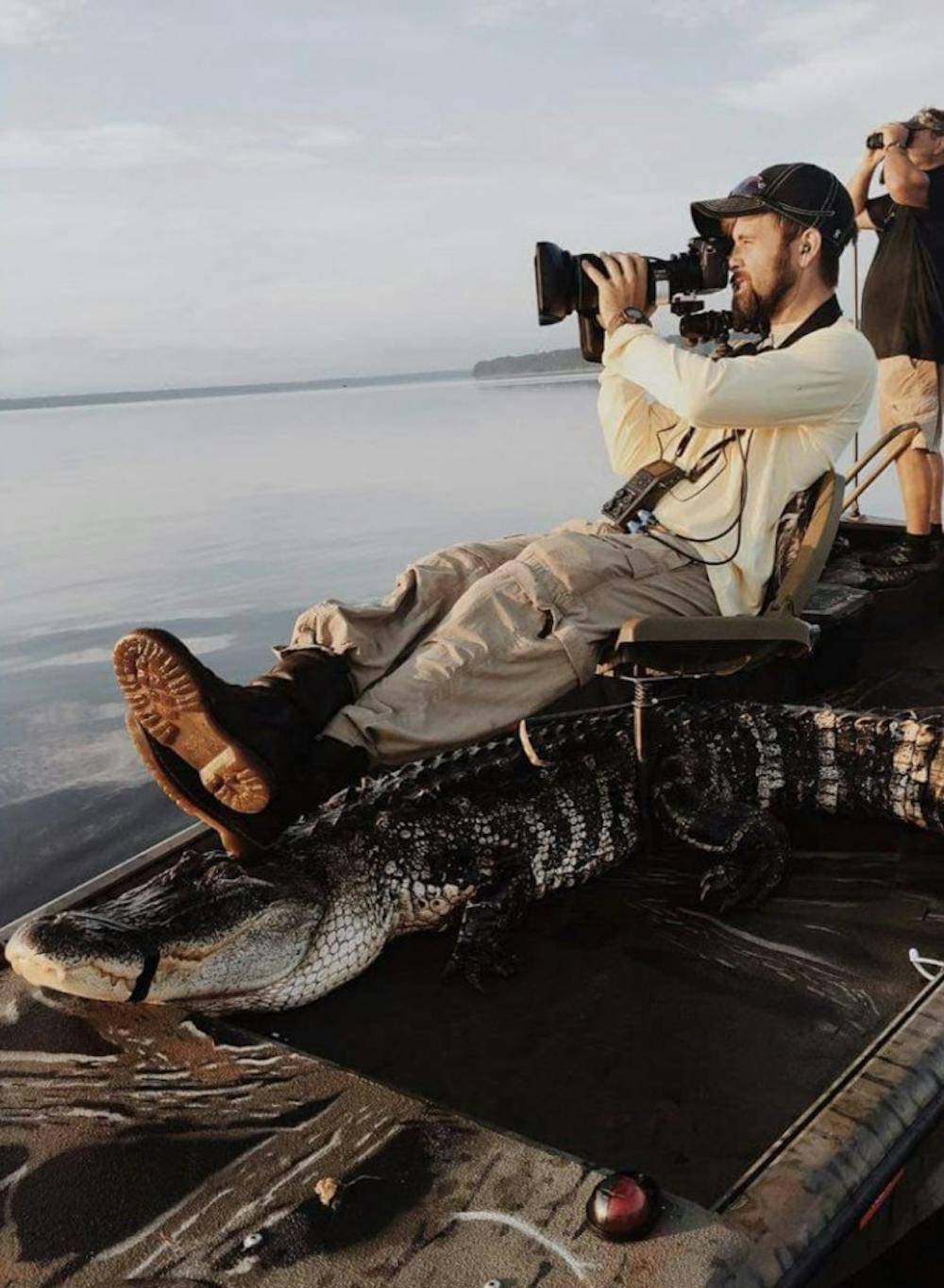Once a year for the past 25 years, Steve Perry looks for bubble trails in the water: a sign that an alligator is nearby.
During Florida’s two-and-a-half-month alligator-hunting season, the Gainesville resident gathers a group of friends and scours state and county lakes for the reptiles, hunting them and selling their hides to make a living.
In March, he turned his passion into a legitimate business, starting a Gainesville-based online retailer, Perry’s Alligator Products, and becoming one of several Floridians who profit from the alligator hunt.
So far this season, which spans from Aug. 15 to Nov. 1, Perry has caught 22 alligators throughout the state and Alachua County, which he will sell to high-paying leather processors.
“When we sell our leather hides, we have people that will take the high-quality ones and sell them to high-end designers” the 47-year-old said. “The high-end designers will then turn them into handbags that sell upwards of $45,000.”
In 1988, to sustainably control rebounding alligator populations, the Florida Fish and Wildlife Conservation Commission enacted the alligator-hunting season, which allows hunters to take two alligators per permit.
Steve Stiegler, a wildlife biologist for the FWC alligator management program, said permits are in high demand, so they’re closely regulated. Last year, the commission received 24,000 applications, only approving 6,000. This year, 6,128 permits were issued, he said.
“All the permits are the same in that they allow the hunters to kill and tag up to two alligators,” Stiegler said. “Once they have used their two tags, their hunting season is over.”
Despite restrictions, Perry said his 20-alligator catch isn’t violating any laws because he pays his friends for their tags.
In Alachua County, his go-to spots include Newnans Lake, Orange Lake and Lochloosa Lake. Just before sunrise, he and two other hunters will set out in a boat. When the bubbles break the surface, Perry jabs a hook into the water.
“We’ll put a hook into them on a rod and reel, fight them for a while, get them up and put a harpoon in them,” Perry said. “Once you have the harpoon in them, you use a bang stick, pull the pin and pop them on their skull cap. That kills them.”
After the hunt, Perry sells the gator hides to someone like Tracy Howell, 54, who processes the skin and sells it to clothing manufacturers like Italian-based Mauri Shoes and U.S.-based Tucket Footwear.
To legitimize his business and encourage walk-in sales, within the next few weeks Howell will open up a store called the Ty Hill Collection in Plant City, Florida, where he will sell alligator-skin shoes, wallets and belts.
An industry veteran for the past 39 years, the Plant City resident said the hunting season is a self-supporting program that funds research and helps local economies.
“This is how I make my living,” he said.






